Peanut Butter for Runners: 3 Benefits and Recommendations
Author:
Unlock your full potential by engaging with our experts and community! Have questions about your fitness journey or looking for expert advice on weightlifting techniques? Don’t hesitate — leave a comment below and Oleksandr Zagrebelnyi will provide a personalized answer and insights to help you reach your goals.
Torokhtiy is reader-supported. Some links are affiliate links, and we may earn a commission at no extra cost to you. See our disclosure page for details.
Are you a runner looking for an energy boost? Try peanut butter for runners! Many athletes turn to peanut butter, as it’s loaded with healthy fats, protein, and other essential vitamins and minerals. In this article, we’ll discuss the benefits of running on peanut butter and provide recommendations for foods and types of peanut butter that are best suited for running activities.
Let’s take a closer look at how adding some delicious peanut butter into your diet can help you power through workouts!
Does peanut butter give you energy for running? – Yes! It can provide sustained energy and aid in muscle recovery. Look for all-natural brands to avoid added sugars or unhealthy oils, which could contribute to weight gain or other health problems. Choose creamy over crunchy when possible, since it is easier to digest. Meanwhile, powdered peanut butter offers the most convenient on-the-go option.
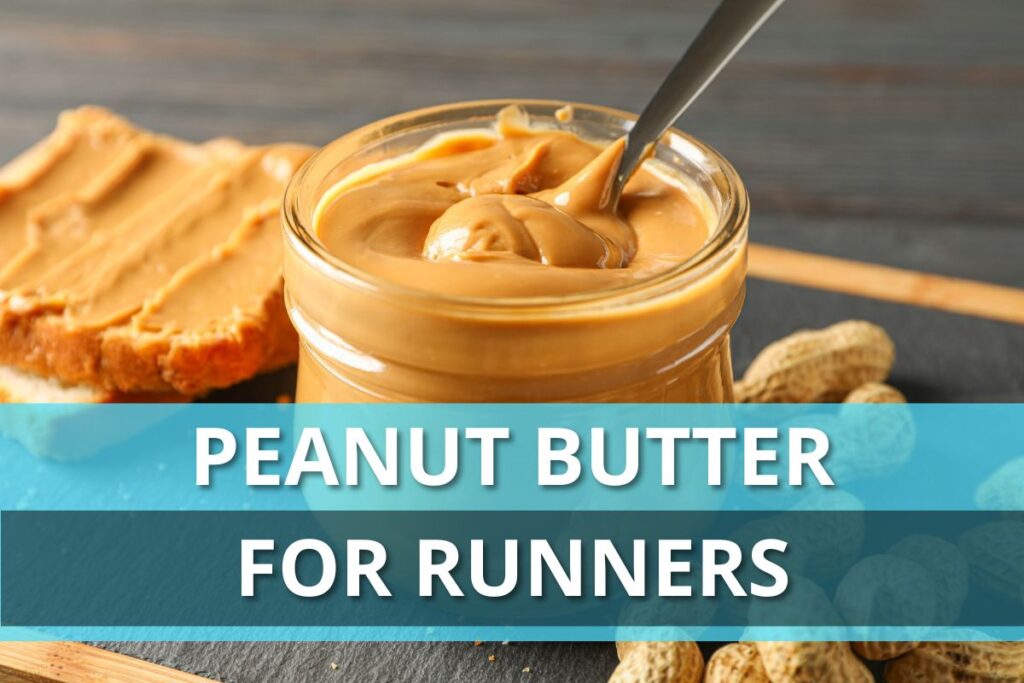
What Is Peanut Paste?
Peanut paste, commonly known as peanut butter, is a thick and creamy spread that not only tastes great, but also offers runners various nutritional benefits. The main ingredient of peanut paste is ground roasted peanuts, which contain essential fatty acids, protein, fiber, vitamins E and B6, magnesium, and potassium.
In addition to its health benefits, peanut butter can offer a delicious snack between runs, both when paired with different food combinations or consumed alone.

Is Peanut Butter Good for Runners?
Runners and other athletes can benefit from the nutrients in peanut butter, such as healthy fats, proteins, and carbohydrates for energy.
Is Peanut Butter a Good Source of Protein for Running?
Peanut butter is a great source of protein for running. A two-tablespoon serving of peanut butter contains 8 grams of protein, which helps to build muscle and aid in recovery after workouts or races.
While the fat content in peanuts may be higher than other forms of protein, these fats are mostly healthy mono- and polyunsaturated fats, which can help reduce inflammation throughout the body.
In addition to its high protein content, peanut butter is rich in essential vitamins and minerals, like niacin, magnesium, and zinc, all of which help improve performance while exercising or racing.
3 Benefits of Peanut Butter for Runners
Peanut butter can be a great source of energy. It can help fuel your runs, and also aid in muscle repair and recovery afterwards. Here are the main benefits that peanut butter provides:

✅ High in Healthy Fats, Protein, and Carbs
With its high concentrations of protein and healthy fats, peanut butter helps to fuel the body with sustained energy during long runs. The healthy fats give the runner slow-release energy, helping to reduce fatigue and maintain concentration during exercise.
The protein found in peanut butter aids in muscle growth and recovery, helping to build muscle tissue and rebuild any damaged muscles.
Carbohydrates are an essential fuel source for athletes, including runners, as they break down into sugar, which is used by the body for energy during exercise. Peanut butter contains carbohydrates that provide a slow, sustained release of energy into the bloodstream.
✅ Contains Essential Vitamins and Minerals
Peanut butter is a rich source of essential vitamins and minerals, which are important for runners. These include niacin, folic acid, B-group vitamins, and Vitamin E. The fiber in peanut butter helps to sustain energy during a run, as it slows down the release of carbohydrates into the bloodstream.
✅ Helps with Muscle Repair and Recovery
Eating peanut butter after exercise is beneficial for runners, as the protein and healthy fats support the healing of sore muscles while providing the energy needed to repair them.
Additionally, studies have shown that consuming a combination of protein and carbohydrates after a workout can reduce muscle damage, increase muscle performance, reduce inflammation, and speed up recovery time.
3 Disadvantages of Peanut Butter for Running
Although peanut butter has numerous benefits for runners, it should be consumed in moderation, due to its high calorie and fat content. Overeating peanut butter has a number of potential side effects:
❌ High in Calories and Fat
Peanut butter is a convenient and tasty snack for athletes, but it is high in fat and calories, which can lead to weight gain if overeaten. Keep in mind that just 2 tablespoons of peanut butter can deliver a quarter of your recommended daily intake of fat. Runners should keep this in mind when integrating peanut butter into their nutrition plan.
❌ Can Be Difficult to Digest During Exercise
Peanut butter is a great addition to a runner’s diet, but it can be difficult to digest during exercise. Fat takes a long time to digest and protein requires a lot of energy in order to break down. Both can cause discomfort when running or engaging in any other kind of physical activity.
❌ Some Brands May Contain Added Sugars and Unhealthy Oils
Some varieties of peanut butter may contain added sugars and unhealthy fats, such as palm or coconut oil, which can contribute to weight gain and an increased risk of cardiovascular disease.
Tips From the Champ
To ensure you are making a healthy choice, look for all-natural brands that do not have any additional ingredients listed on the label. All-natural peanut pastes have about 90% peanuts, as well as salt, some peanut oil, and a bit of sugar (optional).
Running Coach Nike Run Club Kyiv
Beware: Peanut butter should be avoided by those with an allergy to peanuts.
In What Form Is It Best to Consume Peanut Paste for Runners?
Peanut butter can be consumed by runners in three forms: creamy, crunchy, and powdered. Let’s discuss all three in detail:
1. Creamy
Creamy peanut butter typically consists of ground peanuts and a touch of salt, which can provide athletes with essential fatty acids, minerals, vitamins, and powerful proteins that help to protect muscles from injury and speed up recovery time.
High in healthy fats but low in carbohydrates, creamy peanut butter also contains vital electrolytes to keep bodies hydrated during exercise. Although creamy peanut butter has many benefits, eating too much may cause bloating due to the high fat content, which makes it difficult for some people to digest during strenuous physical activity.
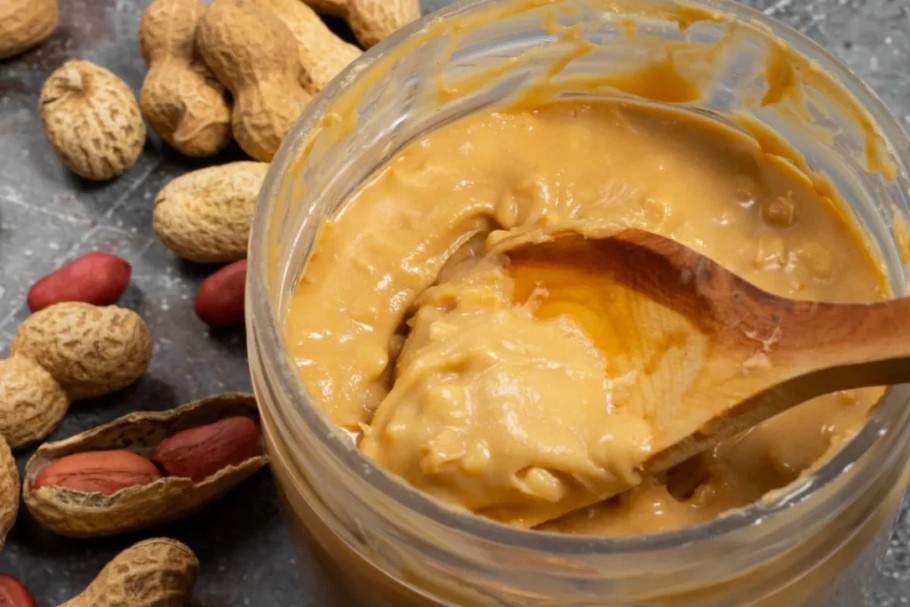
2. Crunchy
Crunchy peanut butter, which has a thicker texture than its creamy counterpart, is also very enjoyable. The key difference between crunchy and creamy peanut butters lies in their ingredients. Cookies, nuts, or other additives are typically added to give crunchy peanut butter its signature texture.
Crunchy peanut paste contains more fat and calories than regular smooth varieties, with 2 tablespoons providing as much as 25% of the daily recommended intake of fat. Due to the additives, it may be harder to digest, so try it first before fueling for a long run.
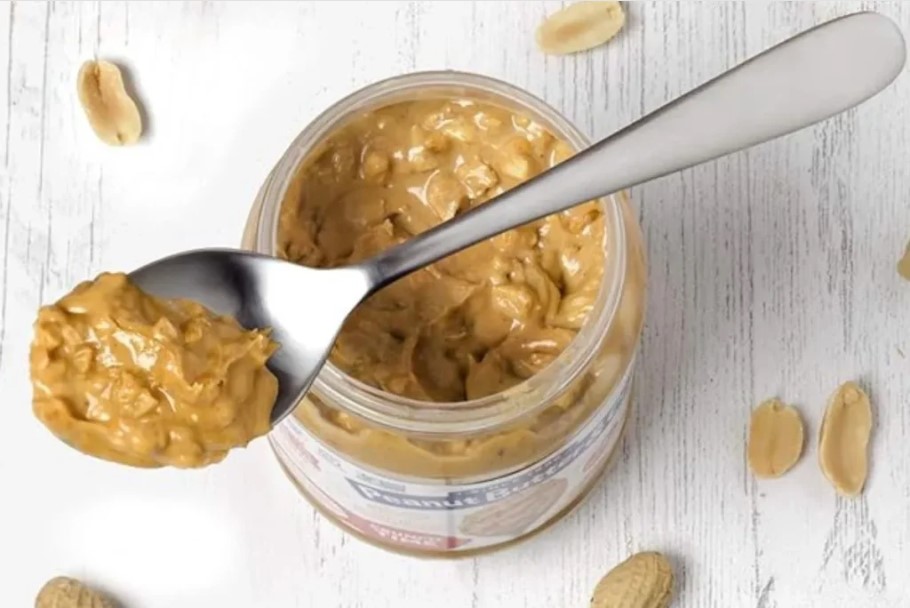
3. Powdered
Powdered peanut butter is an excellent alternative to traditional nut butter for runners. It typically contains fewer calories than regular nut butter and is easier to digest.
Additionally, some powdered options offer up to 25% of daily value of protein, with no fat or sugar added. This makes it perfect for those looking to maintain a healthy weight while still optimizing their performance during running sessions. The one ingredient (roasted peanuts) also eliminates any concern about unhealthy oils or additives creeping into the mix.
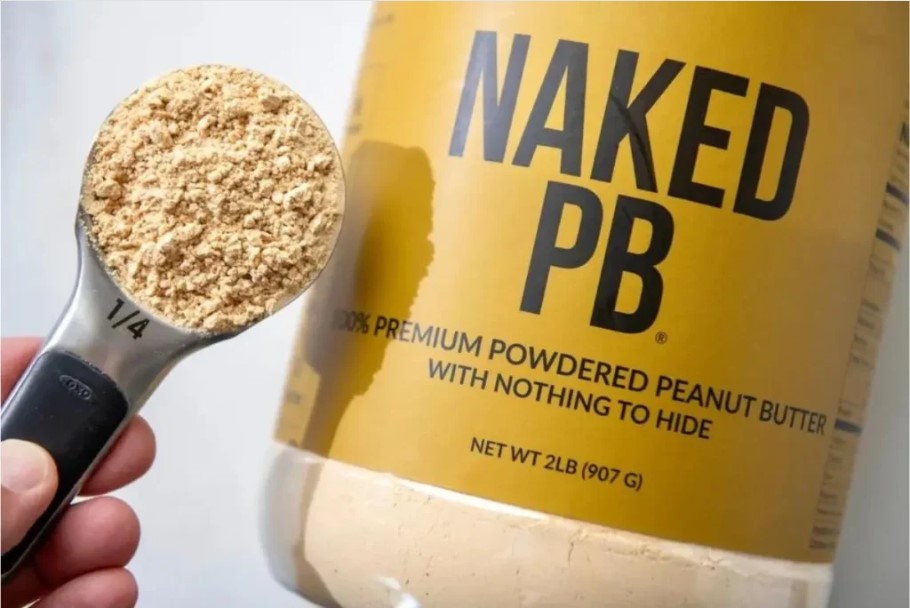
When Is the Best Time to Eat Peanut Butter for Runners?
Runners can incorporate peanut butter into their diets at breakfast, lunch, and dinner. For a nutritious breakfast, peanut butter can be combined with banana or added to a protein shake. For lunch and dinner, try peanut butter sandwiches.
Peanut butter is an excellent snack option, too. It can be spread over toast or mixed into low-fat popcorn, granola bars, and yogurt. But is peanut butter good before a run or after it?
1. Peanut Paste Before Running
Eating peanut butter before a run can be beneficial, depending on the amount and type consumed. That being said, eating too much can make you feel heavy or bloated during your runs.
Therefore, consuming no more than 1 tablespoon prior to exercising is generally recommended for most people.
2. Peanut Paste After Running
Consuming peanut paste after a run can be beneficial for runners, as it aids in muscle repair and recovery, provides essential vitamins and minerals, and is an excellent source of protein.
Eating peanuts after a workout helps refuel the body quickly with its combination of carbohydrates (up to 5g per tablespoon) and protein (7-8g per tablespoon).
The Best Peanut Butter for Runners
Here’s our list of some of the best options for runners looking to add peanut butter into their diets as a healthy, energy-boosting food.
Hoka Bondi 8
- Material: Breathable and supportive mesh upper
- Sole Material: Full-length EVA midsole for maximum cushioning
- Outsole (tread feature): Durable rubber outsole with a unique lug pattern
- Drop: 4mm
- Season: Suitable for all seasons
- Special Features: Exceptional cushioning and comfort
- Size: Available in various sizes
- Type: Maximum cushioning running shoe
If you want excellent running or walking shoes or just footwear you’ll be comfortable in, you can’t go wrong with the Hoka Bondi 8.
It’s been upgraded and now they have lighter, softer materials and a new extended heel design. The heel design gives a super soft, balanced feeling from th emoment your heel hits the ground to when you push off with your toes.
As far as the weight goes, it’s around 10.80 ounces, and the heel drop is 4 mm. They’re not too heavy and the lower drop is a good balance between cushioning and feeling connected to the ground.
The Bondi 8 is focused on cushioning and keeps things simple. There’s a good amount of support without any extra stuff that you don’t really need and that would only jack up the price. Take the rear crash pad, for example – it makes for a soft, smooth ride, which is perfect if you like to run outdoors.
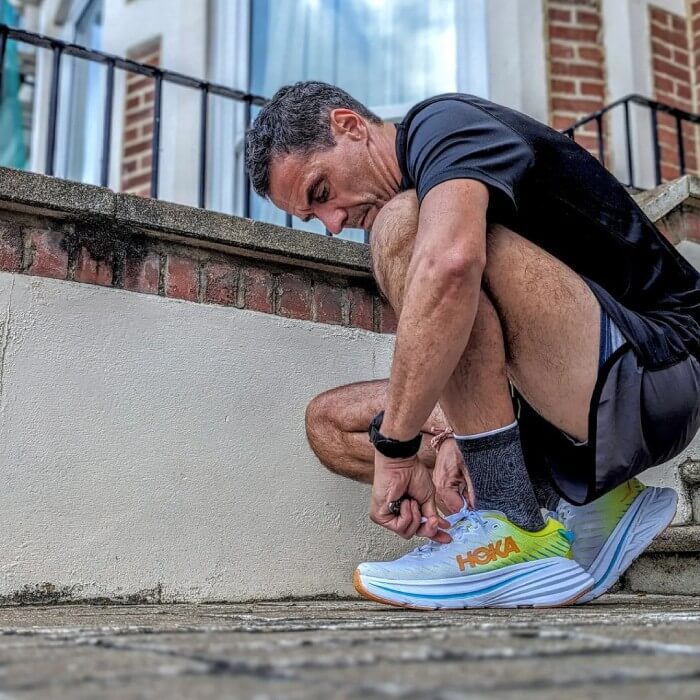
The upper part is made of engineered mesh, which is breathable and keeps your feet cool and dry. The tongue and collar have memory foam and mold to your foot shape. All of these features make the fit snug but flexible, which is exactly what you would want.
The Bondi 8 is eco-friendly because it uses recyclable materials in parts like the mesh and the sockliner. Plus, the shoes are completely vegan, which (if that’s important to you) is nice!
FAQ
Can You Jog after Total Knee Replacement?
It is possible to return to jogging after total knee replacement, but it is important to do so with care and caution. Most doctors suggest waiting at least 6 months before jogging after knee replacements in order to give the joint time to become stable and heal properly.
Is It OK to Run with a Knee Replacement?
Running with a knee replacement is possible. However, it is important to understand that running after knee replacement can carry risks such as increased wear on the artificial joint surfaces and potential loosening or dislodging of the joint.
Can You Run After Double Knee Replacement?
Whether it’s a partial or double knee replacement, you should follow all post-surgery instructions given by your doctor closely during rehabilitation. Some doctors don’t recommend running after double TKR, but there is a possibility to resume running after a full recovery.
Conclusion
Running after a knee replacement requires close supervision and guidance from surgeons, physical therapists, and healthcare professionals. Generally speaking, it is considered safe to return to running after a knee replacement if done under the right conditions.
It is important for runners to understand that there are both risks and benefits associated with returning to running post-surgery. You should consult with a qualified professional before attempting it at any level of intensity or duration.
Additionally, those who have undergone knee replacement surgery may find alternative activities, such as cycling or swimming, which offer significant cardiovascular benefits while avoiding high-impact sports that can damage your joint implant over time.
Do you have any experience in running after knee surgery? Please share your story in the comments below.
References:
- Elena Zaballa, E. Clare Harris, Cyrus Cooper, Catherine H. Linaker, Karen Walker-Bone, “Risk of Revision Arthroplasty Surgery after Exposure to Physically Demanding Occupational or Leisure Activities: A Systematic Review.” PLoS One 17, no. 2 (2022): e0264487, https://doi.org/10.1371/journal.pone.0264487.
- Laura A. Vogel, Giuseppe Carotenuto, John J. Basti, William N. Levine, “Physical Activity after Total Joint Arthroplasty.” Sports Health 3, no. 5 (2011): 441-450, https://www.ncbi.nlm.nih.gov/pmc/articles/PMC3445215/.
- Marco J. Konings, Henri De Vroey, Ive Weygers, Kurt Claeys, “Effect of Knee Arthroplasty on Sports Participation and Activity Levels: A Systematic Review and Meta-Analysis,” BMJ Open Sport & Exercise Medicine 6(2020): e000729, https://bmjopensem.bmj.com/content/6/1/e000729
- Maryke Louw, “Can You Run after a Knee Replacement?” Sports Injury Physio, https://www.sports-injury-physio.com/post/can-you-run-after-a-knee-replacement (accessed October 25, 2023).
- Yvet Mooiweer, Martin Stevens, Inge van den Akker-Scheek, PAIR study group, “Being Active with a Total Hip or Knee Prosthesis: A Systematic Review into Physical Activity and Sports Recommendations and Interventions to Improve Physical Activity Behavior,” European Review of Aging and Physical Activity 19, no. 7 (2022), https://doi.org/10.1186/s11556-022-00285-1
- Photos by Anna Ostanina, Canva; bunyaritklinsukhonphotos, Canva; rattanakun, Canva; atlasstudio, Canva.
Why Trust Us?
With over 20 years in Olympic weightlifting, strength training, nutrition coaching, and general fitness our team does its best to provide the audience with ultimate support and meet the needs and requirements of advanced athletes and professional lifters, as well as people who strive to open new opportunities and develop their physical capabilities with us.
By trusting the recommendations of our certified experts in coaching, nutrition, and sports training programming, as well as scientific consultants, and physiotherapists, we provide you with thorough, well-considered, and scientifically proven content. All the information given in the articles concerning workout programming, separate exercises, and athletic performance, in general, is based on verified data.
The product testing process is described in more detail here.
Oleksandr is a running coach and member of the Nike Run Club coaching team for 8 years. A participant in national and international competitions at distances from one kilometer to the ultra trail. Owner of mountain trail running camps. Nowadays Oleksandr is responsible for creating running training programs for athletes of various levels, coaching personally offline and online, conducts trail running camps in the mountains, participates in competitions.



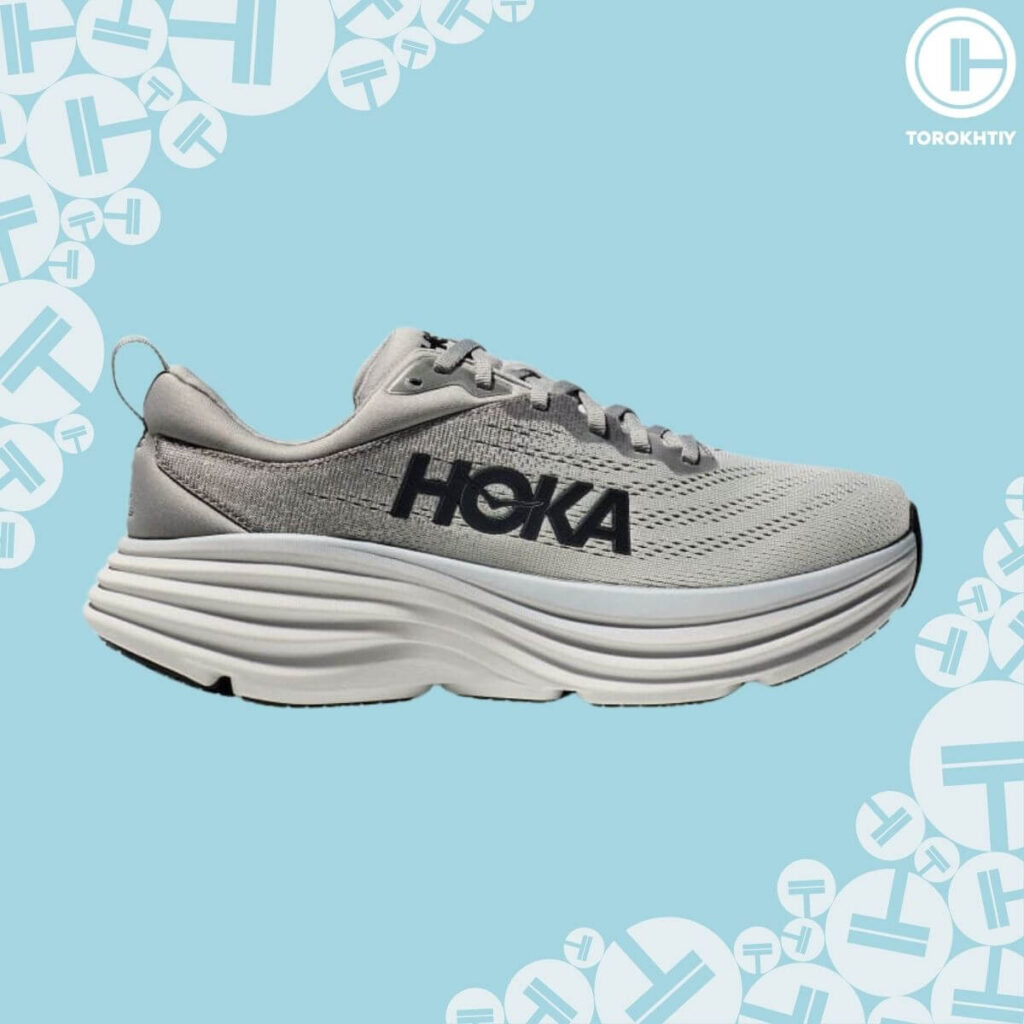
Still have questions after reading our article? Unlock your full potential by engaging with our experts and community! Don’t hesitate — leave a comment below and Oleksandr Zagrebelnyi will provide a personalized answer and insights to help you reach your goals.